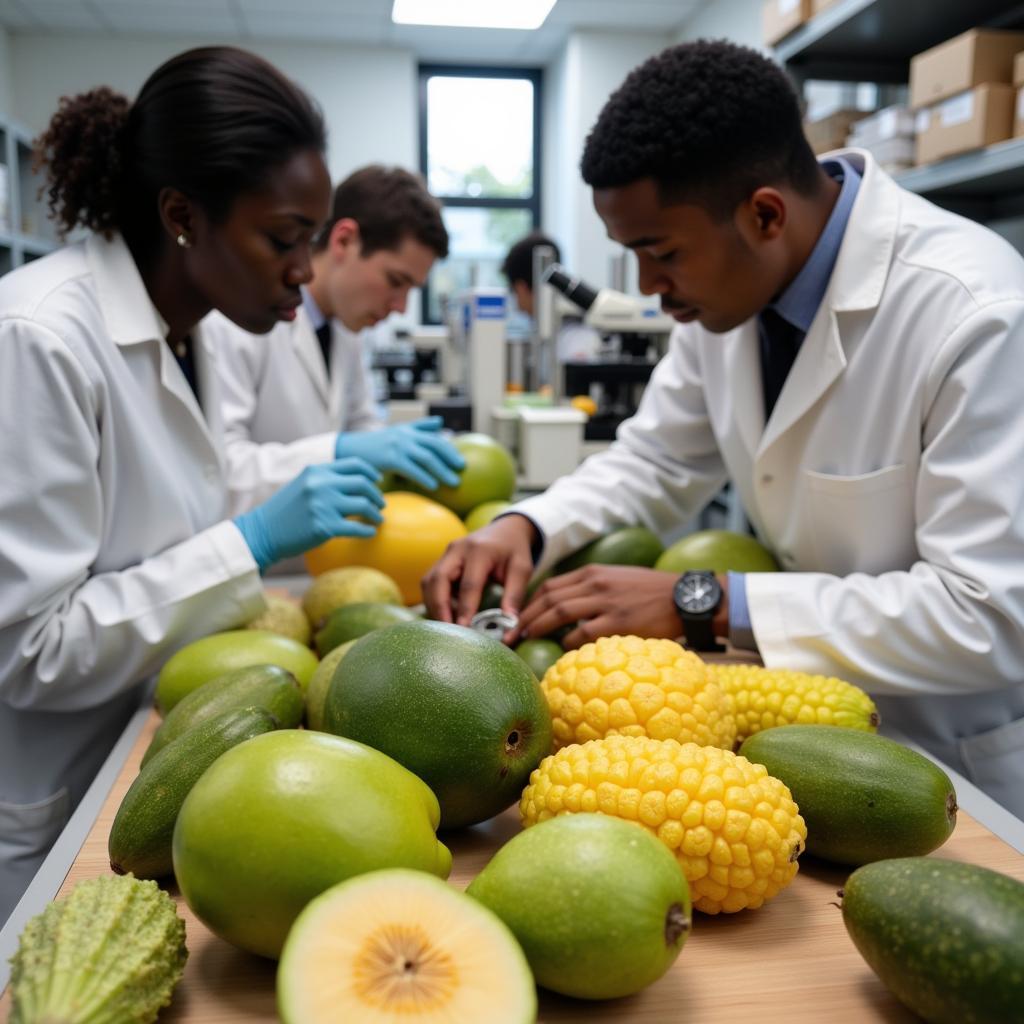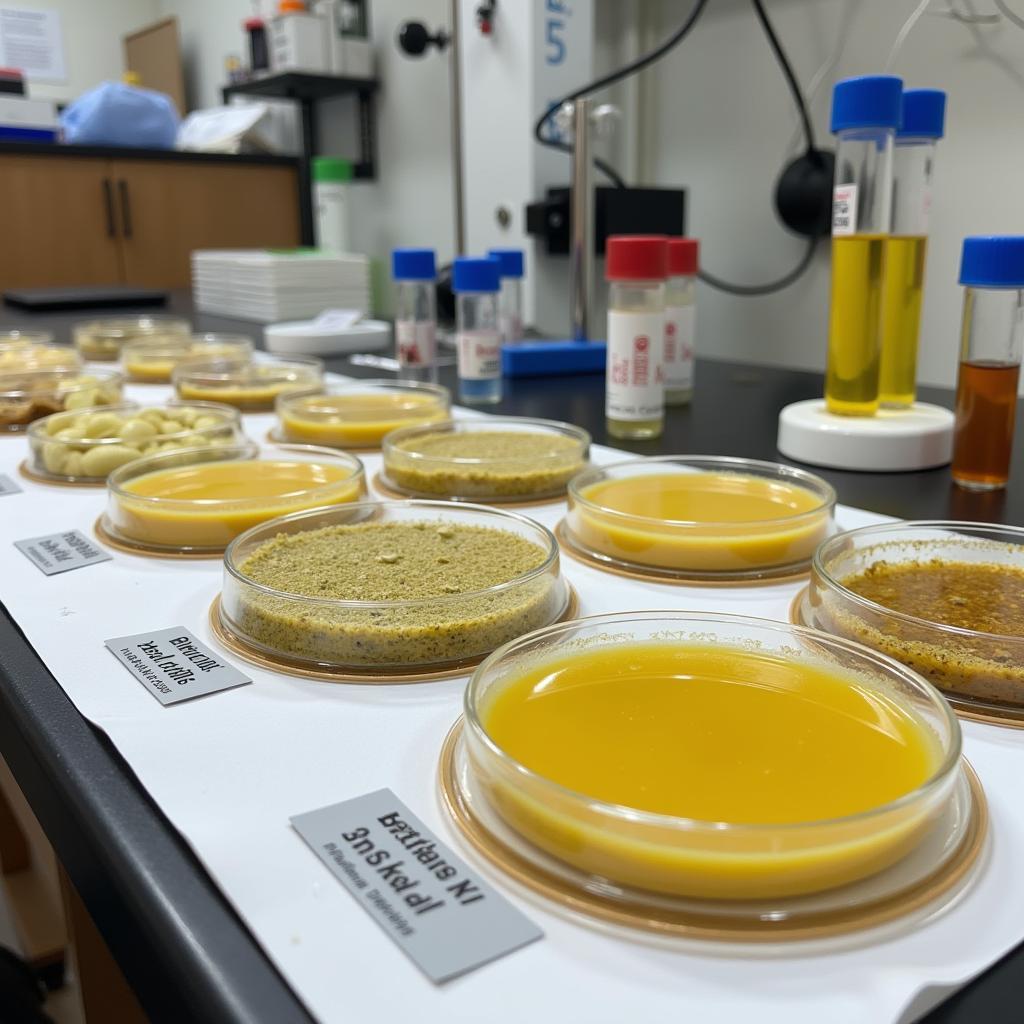African Fruit for Cancer: Exploring Nature’s Potential
African Fruit For Cancer has become a topic of increasing interest, with many looking to traditional remedies and exploring the potential benefits of the continent’s diverse flora. While research is ongoing, it’s important to approach this topic with a balanced perspective, understanding both the potential and the limitations of using African fruits in cancer treatment.  African fruits being researched for cancer-fighting properties
African fruits being researched for cancer-fighting properties
The Rich Biodiversity of African Fruits and Their Potential
Africa boasts an incredible array of fruits, many of which are unique to the continent. These fruits are not only delicious and nutritious but also possess a rich history in traditional medicine. Some of these fruits contain bioactive compounds that have shown promising results in preliminary laboratory studies. For instance, the african fruit that cures cancer is a topic discussed in various circles, though with varying levels of scientific backing. It is crucial to remember that while these initial findings are encouraging, further research is necessary to confirm their efficacy and safety in human trials.
Understanding the Role of Antioxidants
Many African fruits are rich in antioxidants, which are substances that can protect cells from damage caused by free radicals. Free radicals are unstable molecules that can contribute to the development of various diseases, including cancer. By neutralizing free radicals, antioxidants may help to reduce the risk of cancer or slow its progression. Examples of antioxidant-rich African fruits include baobab, marula, and the African cranberry. Learn more about the african cranberry benefits.
Can African Fruit Cure Cancer? A Balanced Perspective
While some anecdotal evidence suggests that certain African fruits may have anti-cancer properties, it’s essential to approach these claims with caution. It’s vital to understand that “cure” is a strong word in the context of cancer treatment. While some fruits may contribute to overall health and well-being, they should not be considered a replacement for conventional medical treatments.
The Importance of Scientific Research
Rigorous scientific research is crucial to validate the potential benefits of African fruit for cancer. Studies need to be conducted to determine the specific compounds responsible for any observed effects, the optimal dosages, and potential side effects. Currently, much of the evidence is based on in vitro studies (conducted in test tubes) or animal models, which may not translate directly to humans.  Laboratory testing of African fruit extracts for anticancer properties.
Laboratory testing of African fruit extracts for anticancer properties.
Integrating African Fruit into a Healthy Lifestyle
Regardless of their potential role in cancer treatment, African fruits are a valuable addition to any diet. They are packed with vitamins, minerals, and fiber, which are essential for overall health and well-being. Including a variety of fruits in your diet can contribute to a healthy lifestyle. You might be surprised by some information like the african breast com.
Dr. Abubakari Kioko, a renowned ethnobotanist specializing in African medicinal plants, notes, “African fruits offer a wealth of nutritional benefits. Incorporating them into a balanced diet is a wise choice for anyone seeking to improve their overall health.”
Exploring Traditional Uses and Modern Research
Many African cultures have a long history of using plants for medicinal purposes. Researchers are now exploring these traditional uses to identify potentially beneficial compounds. This intersection of traditional knowledge and modern science is a promising avenue for discovering new therapies. However, it’s crucial to remember that traditional use does not necessarily equate to proven efficacy.
Professor Amina Mohamud, a leading oncologist at the Aga Khan University Hospital in Nairobi, cautions, “While traditional medicine can offer valuable insights, it’s crucial to subject these practices to rigorous scientific scrutiny before making any definitive claims about their effectiveness in treating cancer.”
Conclusion: African Fruit for Cancer – A Journey of Discovery
The exploration of African fruit for cancer is an ongoing journey. While the potential benefits are exciting, it’s crucial to remain grounded in scientific evidence. Incorporating these fruits into a healthy diet is undoubtedly beneficial, but they should not be viewed as a standalone cure for cancer. Further research is needed to unlock the full potential of these fruits and their role in cancer treatment. Keep in mind topics like african hair skin outside can also provide valuable insights.
Do you have concerns about a child’s diet? Learn more about african fat child.
FAQ
- What are some examples of African fruits with potential anti-cancer properties?
- How can I incorporate more African fruits into my diet?
- Are there any risks associated with consuming African fruits?
- Where can I find more information about ongoing research on African fruit and cancer?
- Should I use African fruits instead of conventional cancer treatments?
- What is the role of antioxidants in cancer prevention?
- How can I distinguish between credible and unreliable information about African fruit and cancer?
When you need assistance, please contact us at Phone: +255768904061, Email: [email protected] or visit us at Mbarali DC Mawindi, Kangaga, Tanzania. We have a 24/7 customer service team.

